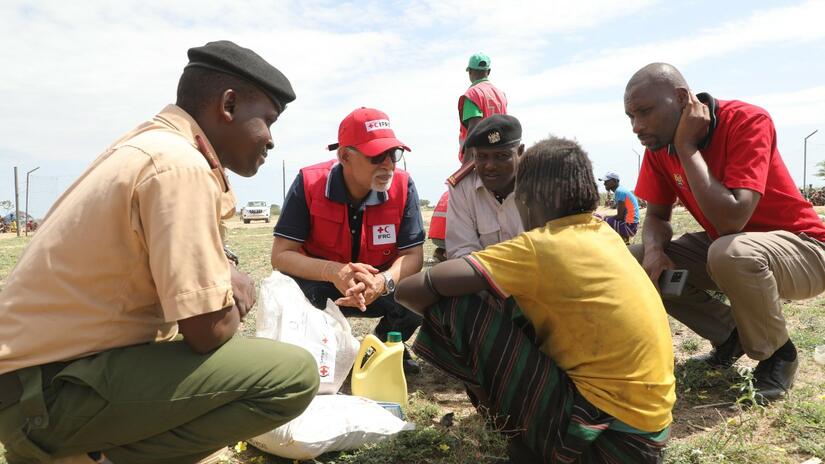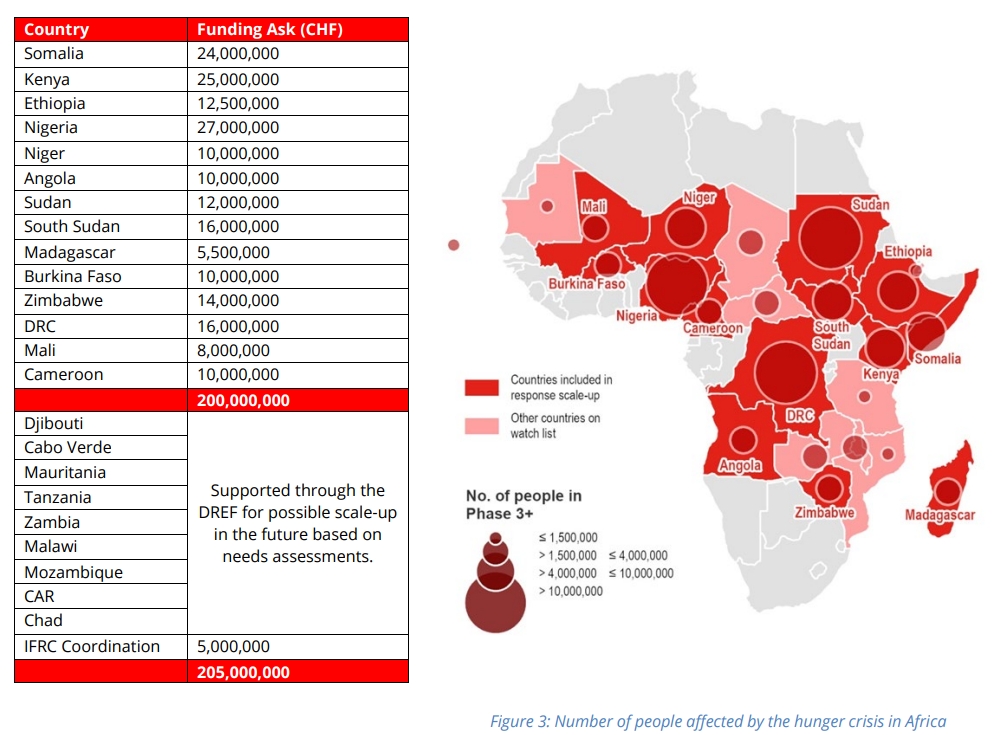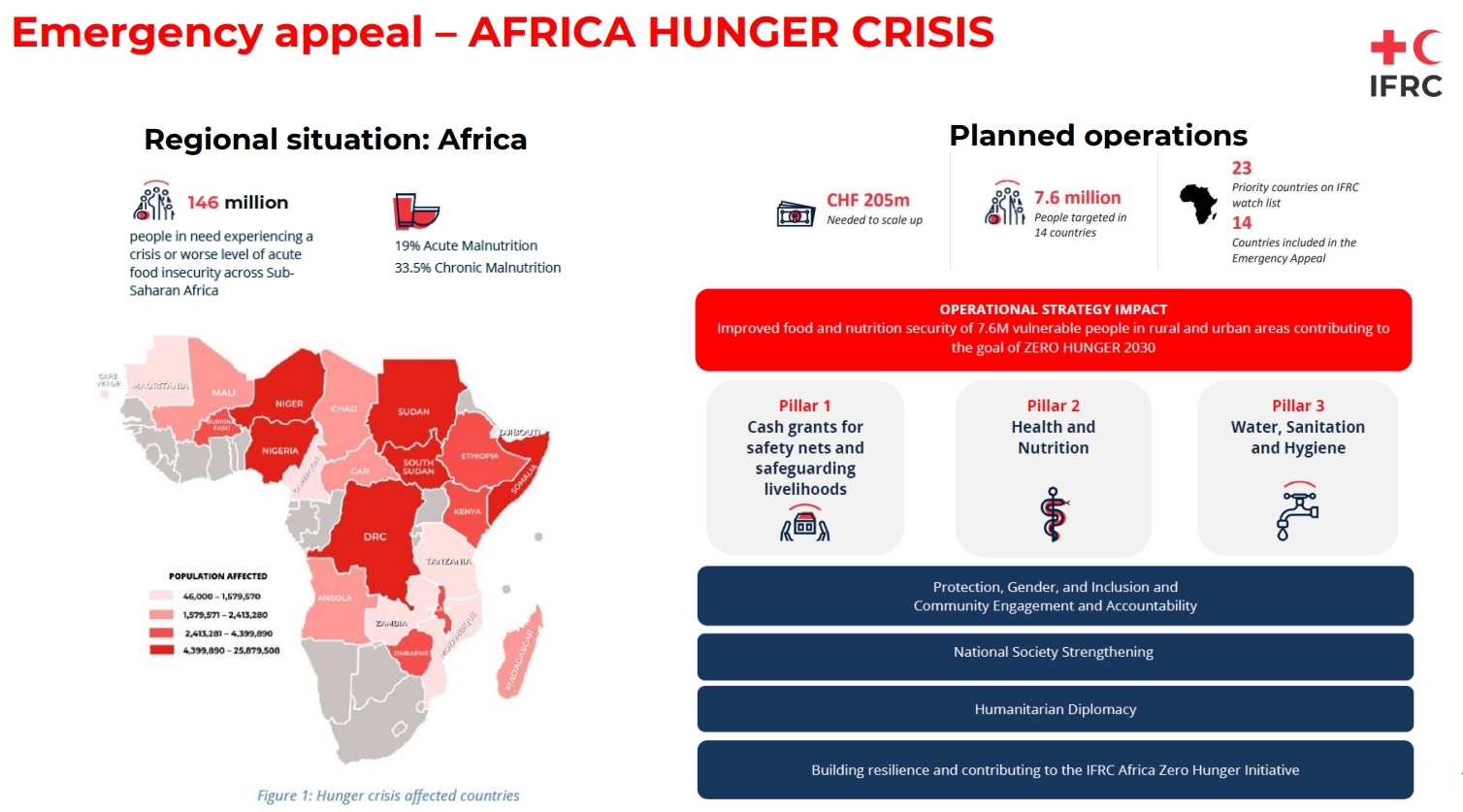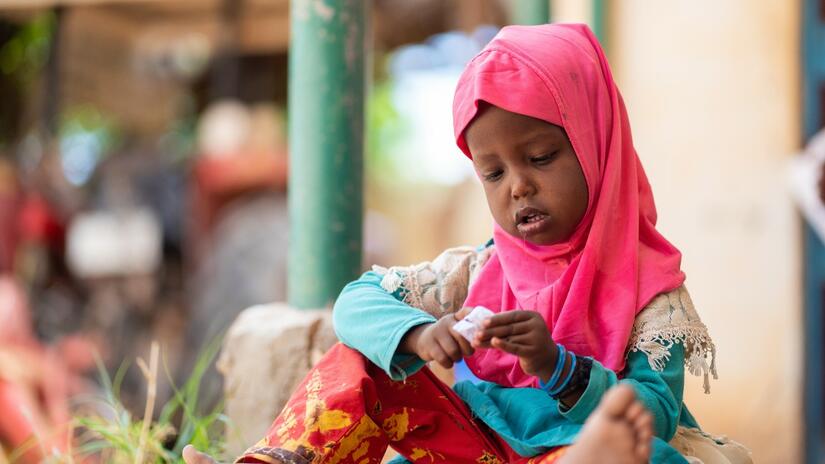News & Events
2022/12/01
Africa Food Shortage and Livelihoods
Africa is experiencing one of the most alarming food crises in decades.
Africa is experiencing one of the most alarming food crises in decades. Roughly 146 million people are suffering from acute food insecurity and require urgent humanitarian assistance.
In the past five years, food shortage have increased by 83 per cent, an estimated 54 million people, with women and children being disproportionately affected. Their vulnerabilities are compounded by poverty, inequality, marginalization, and recurrent shocks, which have fundamentally altered lives. It is unconscionable that in 2022 communities have to endure such acute food shortage, while global food production has continued to increase.
Driven by a complex interplay of insecurity, extreme weather events, climate variability, and negative macroeconomic conditions, this crisis is distinct in its magnitude and geographic scope. As such, it requires an exceptional mobilization and a massive effort by all concerned institutions and states to address the drivers that underpin food shortage in Africa.
To follow up the food shortage humanitarian work of the International Red Cross Movement and response to the appeal of the International Committee of the Red Cross (ICRC) and International Federation of Red Cross and Red Crescent Societies (IFRC), donations will be used for ICRC, IFRC and National Red Cross societies (NSs) to assist Africa food shortage and Livelihoods.
Bank Name: HUA NAN COMMERCIAL BANK, LTD. HO PING BRANCH
Account No.:121-20-0702223
Account Name: The Red Cross Society of the Republic of China
SWIFT Code: HNBKTWTP121
Tel: +886-2-2700-2405
Fax: +886-2-2709-9230
Bank Address: NO.93, HO PING EAST ROAD, SEC. 2, TAIPEI, TAIWAN, R.O.C.
Please click here if you wish to donate by Credit Card

Roughly 146 million people are suffering from acute food insecurity and require urgent humanitarian assistance.

2022 communities have to endure such acute food shortage, while global food production has continued to increase

women and children being disproportionately affected by food shortage
